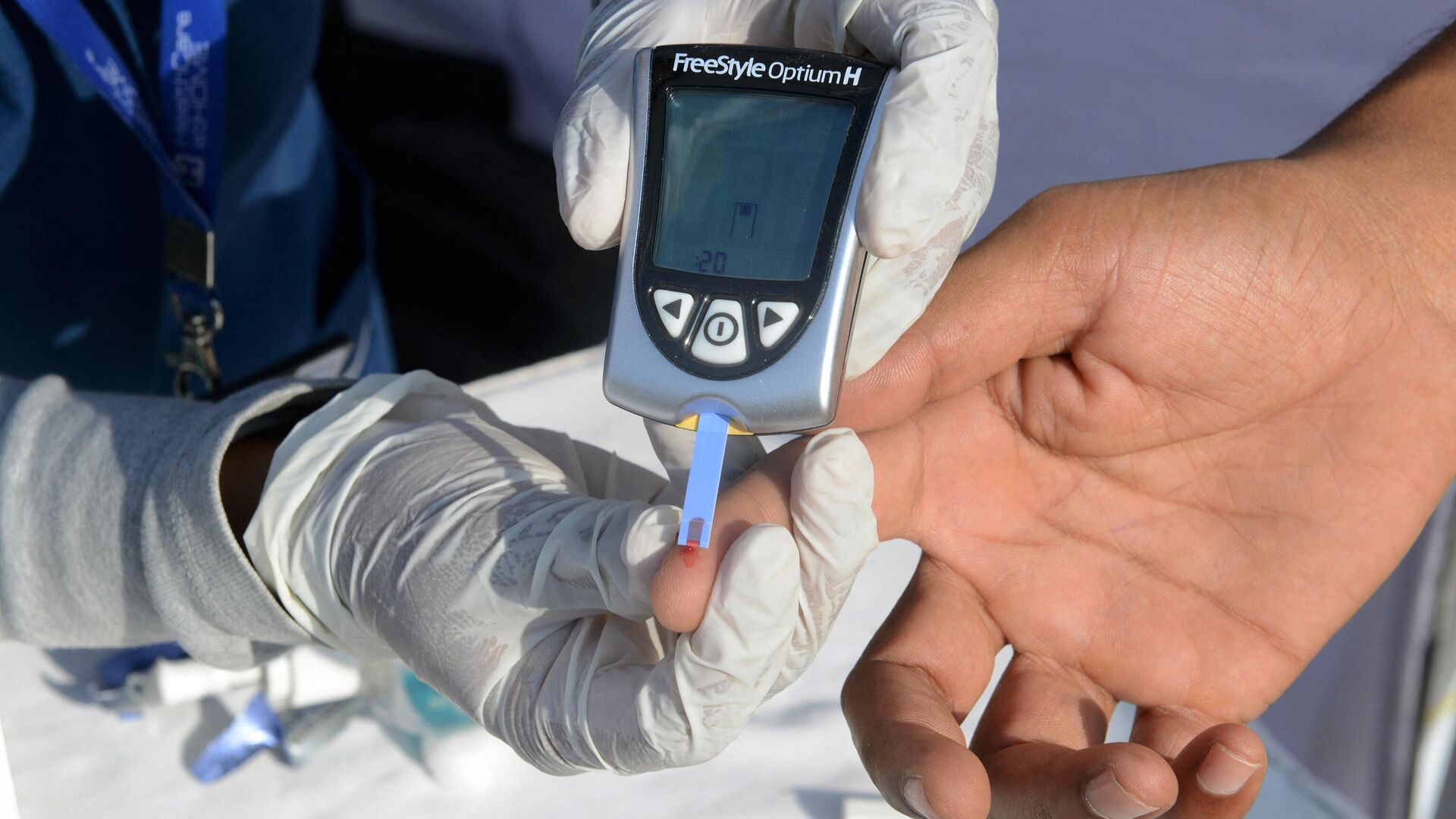https://sputnikglobe.com/20220812/diabeats-indian-scientists-develop-ai-algorithm-that-can-predict-diabetes-1099506608.html
DiaBeats: Indian Scientists Develop AI Algorithm That Can Predict Diabetes
DiaBeats: Indian Scientists Develop AI Algorithm That Can Predict Diabetes
Sputnik International
Researchers believe that with the new algorithm, detecting the disease in its early stages can help prevent serious subsequent health problems. However... 12.08.2022, Sputnik International
2022-08-12T10:27+0000
2022-08-12T10:27+0000
2022-08-12T10:27+0000
scientists
diabetes
artificial intelligence
science & tech
https://cdn1.img.sputnikglobe.com/img/07e6/08/0c/1099510777_0:161:3069:1887_1920x0_80_0_0_b5231d7b35a32e6c0cd48c0e863354d2.jpg
A team of Indian scientists from Maharashtra state has developed an artificial intelligence (AI) algorithm that can help predict the increased risk of developing pre-diabetes and type-2 diabetes.Called "DiaBeats", the algorithm is derived from analyzing the features of an individual's heartbeat recorded on an ECG (electrocardiogram).According to a study published in the online journal BMJ Innovations, the important ECG features consistently matched the known biological triggers fueling cardiac changes that are typical of diabetes and pre-diabetes.The team of researchers from the Lata Medical Research Foundation in the city of Nagpur analyzed the unique structural and functional features of 1,262 individuals who went through a standard 12-lead ECG test that helped generate a predictive DiaBeats algorithm.The researchers claim that they achieved 97 percent precision and accuracy in their measurement and calculations, and an overall result of their study of the DiaBeats algorithm. However, the researchers cautioned that the adoption of this algorithm into routine practice will need robust validation using external, independent datasets.The team said that if validated in larger studies, the approach could be used screening for the disease in low-resource settings. An estimated 463 million adults around the world had diabetes in 2019. The new algorithm, by detecting the disease in its early stages might be key to preventing subsequent serious health problems, but diagnosis relies heavily on the measurement of blood glucose.
Sputnik International
feedback@sputniknews.com
+74956456601
MIA „Rosiya Segodnya“
2022
Sangeeta Yadav
https://cdn1.img.sputnikglobe.com/img/07e4/08/1b/1080292803_0:121:960:1081_100x100_80_0_0_7490b319dab9611e309056b177265184.jpg
Sangeeta Yadav
https://cdn1.img.sputnikglobe.com/img/07e4/08/1b/1080292803_0:121:960:1081_100x100_80_0_0_7490b319dab9611e309056b177265184.jpg
News
en_EN
Sputnik International
feedback@sputniknews.com
+74956456601
MIA „Rosiya Segodnya“
Sputnik International
feedback@sputniknews.com
+74956456601
MIA „Rosiya Segodnya“
Sangeeta Yadav
https://cdn1.img.sputnikglobe.com/img/07e4/08/1b/1080292803_0:121:960:1081_100x100_80_0_0_7490b319dab9611e309056b177265184.jpg
scientists, diabetes, artificial intelligence, science & tech
scientists, diabetes, artificial intelligence, science & tech
DiaBeats: Indian Scientists Develop AI Algorithm That Can Predict Diabetes
Researchers believe that with the new algorithm, detecting the disease in its early stages can help prevent serious subsequent health problems. However, diagnosis relies heavily on the measurement of blood glucose and a mass screening test in low-resource settings.
A team of Indian scientists from Maharashtra state has developed an artificial intelligence (AI) algorithm that can help predict the increased risk of developing pre-diabetes and type-2 diabetes.
Called "DiaBeats", the algorithm is derived from analyzing the features of an individual's heartbeat recorded on an ECG (electrocardiogram).
According to a
study published in the online journal BMJ Innovations, the important ECG features consistently matched the known biological triggers fueling cardiac changes that are typical of diabetes and pre-diabetes.
The team of researchers from the Lata Medical Research Foundation in the city of Nagpur analyzed the unique structural and functional features of 1,262 individuals who went through a standard 12-lead ECG test that helped generate a predictive DiaBeats algorithm.
The researchers claim that they achieved 97 percent precision and accuracy in their measurement and calculations, and an overall result of their study of the DiaBeats algorithm.
“In theory, our study provides a relatively inexpensive, non-invasive, and accurate alternative (to current diagnostic methods) which can be used as a gatekeeper to effectively detect diabetes and pre-diabetes early in its course," the team said in the study.
However, the researchers cautioned that the adoption of this algorithm into routine practice will need robust validation using external, independent datasets.
The team said that if validated in larger studies, the approach could be used screening for the disease in low-resource settings.
An estimated 463 million adults around the world had diabetes in 2019. The new algorithm, by detecting the disease in its early stages might be key to preventing subsequent serious health problems, but diagnosis relies heavily on the measurement of blood glucose.




